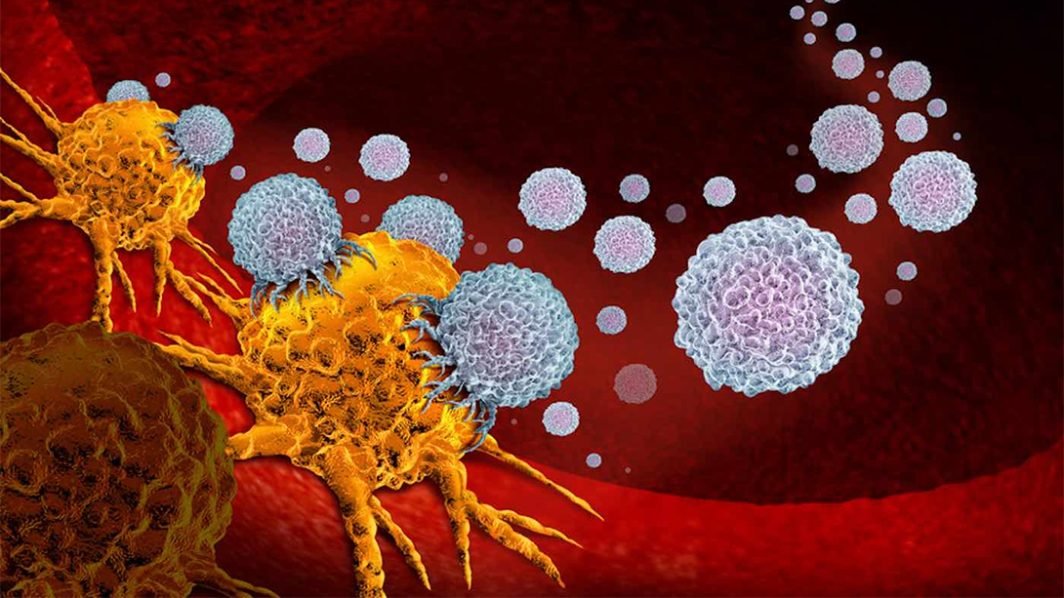
Although cancer treatments have improved significantly over recent years,![]() the search for the holy grail –a really effective cure — remains elusive. Even the much improved treatments in common use today carry risks. As Dr Claus Jacob of the University of Exeter explains, ‘cancer therapy has long been based on highly toxic substances that randomly kill healthy and sick cells alike.’
the search for the holy grail –a really effective cure — remains elusive. Even the much improved treatments in common use today carry risks. As Dr Claus Jacob of the University of Exeter explains, ‘cancer therapy has long been based on highly toxic substances that randomly kill healthy and sick cells alike.’
Now, however, Dr Jacob and Dr Gutowski of the Royal Devon and Exeter Hospital, with support from the Peninsula Medical School, are working on a new approach that causes cancer cells to self-destroy: effectively to commit suicide. In a project that started in 2000 (first with funding from the UK Research Council funding, then from the Leverhulme Trust and involvement of Exeter Antioxidant Therapeutics Ltd) the research has led to the discovery of catalysts that mimic the activity of a certain human enzyme (glutathione peroxidase). They work by setting off reactions in the cancer cells causing them to kill themselves. A crucial benefit of this approach is that the drugs target only diseased cells, leaving healthy ones intact. This means that any therapy based on this approach should avoid many of the risks and side effects associated with chemotherapy and radiotherapy. The treatment is also highly efficient because, as Dr Jacob says, ‘catalysts are not consumed during their activity but are recycled over and over again. This means that only minute quantities of biocatalyst are needed to kill cancer cells.’
Dr Jacob goes on to explain that the principle to make cancer cells kill themselves ‘is based on the fact that catalysts are not only effective, but also highly selective:
‘We knew from previous research (by us and others) that cancer cells have their own “biochemical signature” and that we could design catalysts that recognise this signature and use it to kill cells. We have also looked at natural human defence systems – and they use a similar catalytic chemistry.’
Of course many different types of cancers exist and the crucial question many will ask is what kinds of cancers could be treated by this method in the future? At this stage in the research the catalysts have been shown to work with cancer cells containing elevated concentrations of so-called ‘reactive species’. Cancers that are known to have these species are human prostate and kidney cancer and certain lung carcinomas. The content of reactive species in several other kinds of cancer cells is still not fully determined.
As existing cancer treatments are associated with risks to healthy cells as well as the cancerous ones, recent research worldwide has been concentrating on the design of drugs that specifically target cancer cells and leave healthy cells alone. Such treatments lower the side effects of the drugs significantly, but unfortunately not completely. ‘Our approach,’ says Dr Jacob, ‘uses catalysts to achieve this goal. Catalysts are very different from “one shot” conventional drugs since they facilitate reactions of species already present within the cancer cell and themselves are therefore recycled. This means they are active in very small
concentrations. Since they “need” the cancer cell’s reactive species for activity, they are only active in cancer cells but not in normal cells.’
The compounds have been developed and synthesised at Exeter University”s School of Biological and Chemical Sciences and tested in cancer cells at the Royal Devon and Exeter Hospital and the research is now entering its critical phase. The team has just started with animal tests and hopes to proceed to clinical trials once the compounds have shown activity in the animal models. They have teamed up with Exeter Antioxidant Therapeutics Ltd. and this company is providing patent protection and is negotiating with larger pharmaceutical companies to develop and test these catalysts further. Since this approach is based on a new method rather than a single new compound, it has considerable potential for the development of a range of new catalysts with anticancer potential.
Although the research team stresses that treatment based on this approach is still many years off, their findings open up valuable new directions in the field of anti-cancer research.
For further information, please contact:
Claus Jacob
University of Exeter
C.Jacob@exeter.ac.uk
Note about Dr Jacob:
Dr Claus Jacob moved to Exeter from Harvard Medical School in 1999 and has worked for several years at the Chemistry/Medicine interface. He has published numerous research papers on the importance of oxidative stress
in health and disease.




